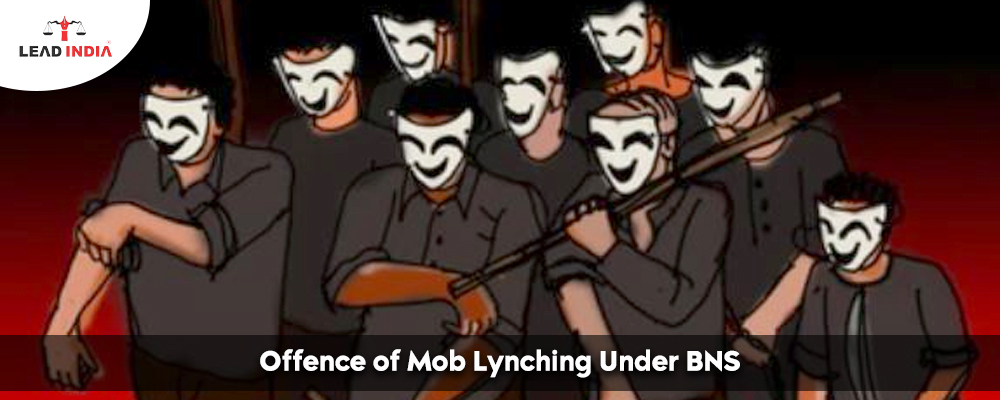The introduction of particular provisions for mob lynching looks to be a step forward, as indicated by the Supreme Court in Tehseen S. Poonawalla v. Union of India. Recognizing the growing problem of mob vigilantism and its ramifications for the rule of law, the Supreme Court asked Parliament to pass a special statute prohibiting mob lynching and providing suitable punishment for such acts. The Court also imposed some preventive, corrective, and punitive measures, such as rules for proper investigation and trial, as well as particular provisions for monetary compensation to victims of mob lynching.
Data Collection on Mob Lynching
In India, mob lynching has become a hindrance to law and order, causing societal tensions in recent years. According to media accounts, more than 100 people were killed in mob violence in 2015. The Union Minister of State for Home Affairs stated in the Lok Sabha that statistics on mob lynchings are unreliable.
Because there was no provision for mob lynching, it was impossible to track down those who perpetrated the crime. When three or more people are involved in activities such as murder or rioting, it is deemed mob lynching, which was mentioned as a side note. As a result, no separate data was kept for mob lynching. This was a statement made by an IPS officer that accurately reflects the country’s terrible status.
Need A Legal Advice
The internet is not a lawyer and neither are you. Talk to a real lawyer about your legal issue

Offence of Mob Lynching Under BNS
The Bhartiya Nyaya Sanhita was introduced to the Lok Sabha on August 11, 2023. When the bill is enacted, it will repeal the IPC. It has currently been referred to the Standing Committee for review.
Clause 103(2) of the Bhartiya Nyaya (Second) Sanhita criminalizes mob lynching. According to this provision, when a group of five or more persons acting in concert murders on the grounds of race, caste or community, sex, place of birth, language, personal beliefs, or any other cause, each member of such organization must be punished with death, imprisonment for life, or imprisonment for at least seven years and shall also be liable to fine.
Furthermore, sub-clause 4 of Clause 117 (voluntarily causing grievous hurt) provides, “when grievous hurt of a person is caused by a group of five or more persons on the ground of his, race, caste, sex, place of birth, language, personal belief, or any other ground, each member of such group shall be guilty of the offense of causing grievous hurt, and shall be punished with imprisonment of either kind for a duration of up to seven years, and shall also be responsible.
It is important to note that the addition of these provisions, along with the previous provisions of “murder” and “grievous hurt,” indicates that the gravity of these offenses, equivalent to murder and grievous hurt, respectively, has been recognized, as has the element of “hate” involved in targeted mob violence.
While the punishment for murder under Clause 103(1), Bhartiya Nyaya (Second) Sanhita, is death or imprisonment for life and a fine, the punishment for mob lynching under Clause 103(2) is death or imprisonment for life and a fine. One could argue that a seven-year sentence is insufficient given the severe nature of the offence.
Motives for Mob Lynching
- Fake news can spread easily due to a lack of knowledge and education. This would affect such people, causing widespread instability and damage. Deep societal divides intensify the problem, producing a hotbed for mob violence.
- Unemployment can lead to misguided youth vulnerable to ideologies and vested interests. Poor implementation of laws designed to protect vulnerable groups against mobs and inefficient law enforcement by government machinery exacerbate the problem.
- Hate crimes continue to grow due to insufficient law enforcement and inefficient investigation techniques that fail to reach rational conclusions. The anonymity of social media platforms and the fictitious identities of their users exacerbate the transmission of information, disinformation, and propaganda, with targeted campaigns frequently resulting in bloodshed and societal upheaval.
- Caste, class, and religious prejudices frequently motivate mob lynching. The political class’s use of communal cleavages can promote hatred and violence.
Lead India provides free legal advice, internet information, and other legal services. We offer a forum where you may talk with a lawyer and ask legal questions. Lead India’s Lawyers may assist you with any legal matters. Lead India’s solicitors can help you with any legal concerns. Lead India also offers free online legal help in India. In addition to providing online legal aid, Lead India allows users to ask specialist inquiries for free.





 Talk to a Lawyer
Talk to a Lawyer